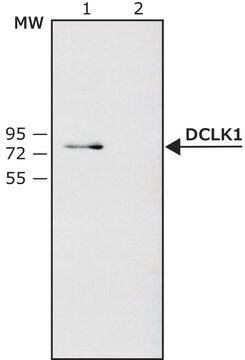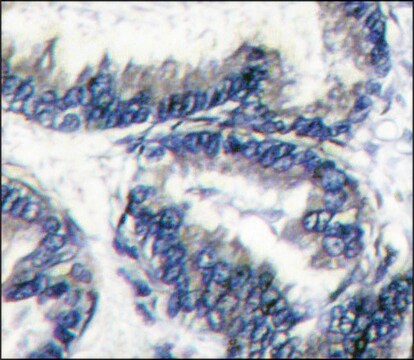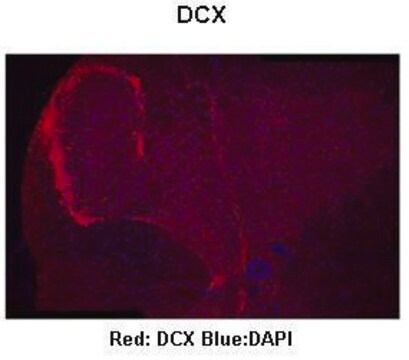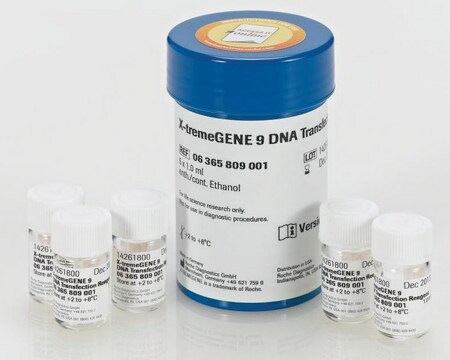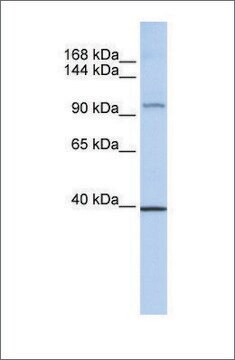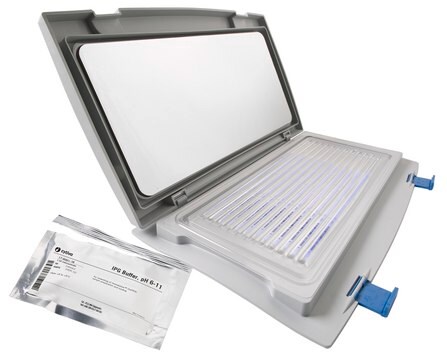一般說明
We are committed to bringing you greener alternative products, which adhere to one or more of The 12 Principles of Green Chemistry.This antibody is Preservative-free, produced without the harm or sacrifice of animals and exceptionally stable to allow for ambient shipping and storage if needed and thus aligns with "Waste Prevention", "Designing Safer Chemicals" and "Design for Energy Efficiency".
Click here for more information.
ZooMAb® antibodies represent an entirely new generation of recombinant monoclonal antibodies.Each ZooMAb® antibody is manufactured using our proprietary recombinant expression system, purified to homogeneity, and precisely dispensed to produce robust and highly reproducible lot-to-lot consistency. Only top-performing clones are released for use by researchers. Each antibody is validated for high specificity and affinity across multiple applications, including its most commonly used application. ZooMAb® antibodies are reliably available and ready to ship when you need them.
特異性
Clone 1D13 is a ZooMAb® rabbit recombinant monoclonal antibody that specifically detects the short isoform of Serine/threonine-protein kinase DCLK1. It targets an epitope within 10 amino acids from the N-terminal region.
免疫原
KLH-conjugated linear peptide corresponding to 10 amino acids from the N-terminal region of the short isoform of human Serine/threonine-protein kinase DCLK1 (isoform 3).
應用
Quality Control Testing
Evaluated by Western Blotting in Human brain tissue lysate.
Western Blotting Analysis: A 1:10,000 dilution of this antibody detected DCLK1-S in Human brain tissue lysate.
Tested applications
Western Blotting Analysis: A 1:1,000 dilution from a representative lot detected DCLK1-S in Mouse Brain and Rat Brain tissue lysates.
Affinity Binding Assay: A representative lot of this antibody bound DCLK1-S peptide with a KD of 7.8 x 10-8 in an affinity binding assay.
Immunohistochemistry (Paraffin) Analysis: A 1:100 dilution from a representative lot detected DCLK1-S in human cerebral cortex tissue sections.
Flow Cytometry Analysis: 0.1 μg from a representative lot detected DCLK1-S detected DCLK1-S in one million HCT116 cells.
Note: Actual optimal working dilutions must be determined by end user as specimens, and experimental conditions may vary with the end user
Evaluated by Western Blotting in Human brain tissue lysate.
Western Blotting Analysis: A 1:10,000 dilution of this antibody detected DCLK1-S in Human brain tissue lysate.
標靶描述
Serine/threonine-protein kinase DCLK1 (UniProt: O15075; also known as EC: 2.7.11.1, Doublecortin domain-containing protein 3A, Doublecortin-like and CAM kinase-like 1, Doublecortin-like kinase 1) is encoded by the DCLK1 (also known as DCAMKL1, DCDC3A, KIAA0369) gene (Gene ID: 9201) in human. DCLK1, an integral component of plasma membrane, is highly expressed in fetal brain tissue and is also detectable in lung and liver. Its expression is reported to be critical for growth of human colon cancer cells and it is up-regulated in response to growth factors resulting in hyperproliferation. Both long (L) (~80-82 kDa) and short (S) (~45-50 kDa) isoforms of DCLK1 have been described. The long isoform contains two N-terminal doublecortin domains, which bind microtubules, a C-terminal serine/threonine kinase domain with homology to CaM kinases, and a middle serine/proline rich domain that mediates protein interactions. The short isoform, DCLK1-S, has been reported in human colorectal cancer cells and in cancer stem cells. The short isoform lacks the two N-terminal doublecortin domains. It is not a splice variant, but is expressed from an alternate beta promoter in intron V of the gene that results in the presence of the unique sequence of amino acids. These amino acids are absent in the long isoform, which is expressed by the alpha promoter in the 5 region of the gene. It has been reported that the 5′ (alpha)-promoter of the human DCLK1 gene becomes epigenetically silenced during colon carcinogenesis, resulting in loss of expression of the canonical long isoform in human colorectal adenocarcinomas (hCRCs). Instead, hCRCs express the short isoform. Colon tumors and normal colons from mice are reported to only express the long isoform, since the epigenetics of colon carcinogenesis in mice is significantly different from that in humans. This ZooMAbZooMAb® recombinant monoclonal antibody, generated by our propriety technology, offers significantly enhanced specificity, affinity, reproducibility, and stability over conventional monoclonals. (Ref.: Sarkar, S et al. (2017). Lab. Invest. 97(10):1245-1261; Sarkar, S., et al. (2017). Mol. Cancer Res. 15(12):1678-1691).
外觀
Purified recombinant rabbit monoclonal antibody IgG, lyophilized in PBS, 5% Trehalose, normal appearance a coarse or translucent resin. The PBS/trehalose components in the ZooMAb formulation can have the appearance of a semi-solid (bead like gel) after lyophilization. This is a normal phenomenon. Please follow the recommended reconstitution procedure in the data sheet to dissolve the semi-solid, bead-like, gel-appearing material. The resulting antibody solution is completely stable and functional as proven by full functional testing. Contains no biocide or preservatives, such as azide, or any animal by-products. Larger pack sizes provided as multiples of 25 μL.
重構
300 μg/mL after reconstitution at 25 μL per vial. Please refer to guidance on suggested starting dilutions and/or titers per application and sample type.
儲存和穩定性
Recommend storage of lyophilized product at 2-8°C; Before reconstitution, micro-centrifuge vials briefly to spin down material to bottom of the vial; Reconstitute each vial by adding 25 μL of filtered lab grade water or PBS; Reconstituted antibodies can be stored at 2-8°C, or -20°C for long term storage. Avoid repeated freeze-thaws.
法律資訊
ZooMAb is a registered trademark of Merck KGaA, Darmstadt, Germany
免責聲明
Unless otherwise stated in our catalog or other company documentation accompanying the product(s), our products are intended for research use only and are not to be used for any other purpose, which includes but is not limited to, unauthorized commercial uses, in vitro diagnostic uses, ex vivo or in vivo therapeutic uses or any type of consumption or application to humans or animals.

